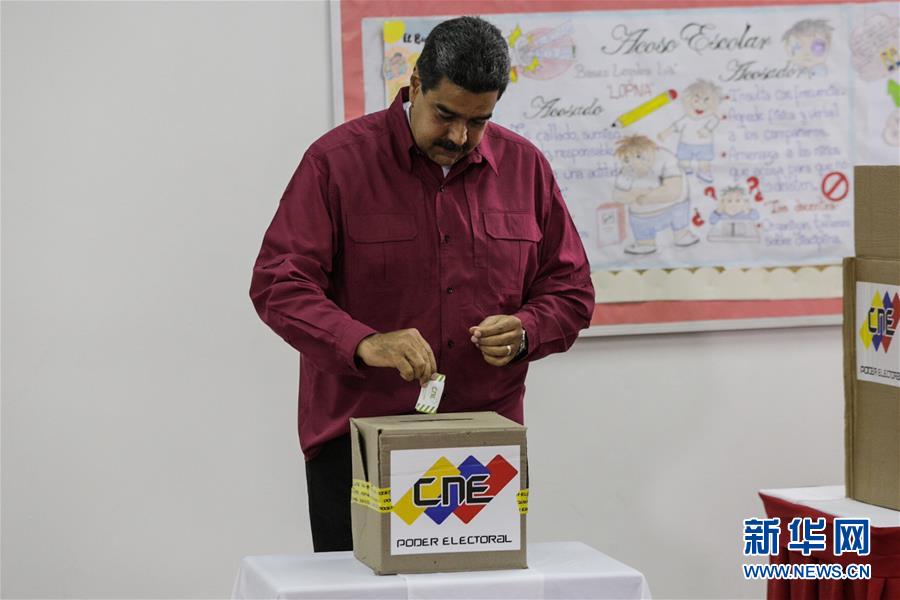【free sex videos of moms forced anally by interracial.com】Enter to watch online.Study finds Trump 4 times more likely than Clinton to 'mock or criticize' on Twitter
Donald Trump doesn't usually hold back.
Whether it's an attack on free sex videos of moms forced anally by interracial.coma Gold Star family, an entire religion or a private citizen like the former Miss Universe he called "Miss Piggy," Trump's not exactly a stranger to insults. Now, though, there's also statistical evidence to back that assertion up.
SEE ALSO: Clever cartoon sums up the difference between Clinton and Trump
A new study has found that the Republican presidential candidate is four times more likely to "mock or criticize" other candidates, media or government in a tweet than his primary opponent, Hillary Clinton.
Around 10 percent of his tweets, meanwhile, contain "uncivil" language, like the words "liar" or "dumb puppets," according to the study, led by Jayeon Lee of Lehigh University in Pennsylvania.
Going to Ohio, home of one of the worst presidential candidates in history--Kasich. Can't debate, loves #ObamaCare--dummy!
— Donald J. Trump (@realDonaldTrump) November 23, 2015
Weak and totally conflicted people like @TheRickWilson shouldn't be allowed on television unless given an I.Q. test. Dumb as a rock! @CNN
— Donald J. Trump (@realDonaldTrump) December 10, 2015
"Trump is a very interesting candidate in that sense — very unpredictable," Lee told Mashable. "It was interesting that he had such a high level of incivility ... We have this candidate who is not following the very conventional ways of communication."
The study is set to be published in the November 2016 edition of Public Relations Review. It analyzed two weeks of Trump and Clinton tweets from fall 2015, right in the midst of debate season for the primaries.
Opinions about "public and social issues" made up half of Clinton's tweets, and more than half of her tweets contained links, images, graphics or video. For Trump, 79 percent of his tweets were text-only.
Hillary’s college plan will help students preparing for college, those already in school, and those paying off debt. https://t.co/c0g8A5NYH7
— Hillary Clinton (@HillaryClinton) September 28, 2016
Meanwhile, Trump's opinions on policies and issues made up less than a fifth of his tweets. The greater chunk of his missives featured either criticisms of others or statements of support.
Thank you for your endorsement, @GovernorSununu. #MAGA https://t.co/8BEeQPsuyd
— Donald J. Trump (@realDonaldTrump) September 27, 2016
In fact, nearly 40 percent of Trump's tweets were statements of support or endorsement, and 25 percent were criticisms or attacks. Statements of support formed the most common type of content in his tweets, while the most common content for Clinton's tweets were her opinions on issues, the study found.
As the election season has been heating up, however, Clinton has been going on the offense a bit more, as shown by data compiled by researchers at the University of Pennsylvania and Syracuse University. On Sept. 27, she sent out 31 tweets that were attacks of some sort, showing her more directed attempts to discredit her opponent.
A man who bullies and shames a woman for her weight should never become president. pic.twitter.com/ueLuxRS6Ta
— Hillary Clinton (@HillaryClinton) September 28, 2016
However, that data — made available through a research project on social media's role in the election — also showed that Clinton was still more likely to send a tweet of advocacy than one launching an attack. In addition to 31 attack tweets on Sept. 27, she also sent out 42 tweets of advocacy.
 Original image has been replaced. Credit: Mashable
Original image has been replaced. Credit: Mashable The new study also noted that Trump seemed to directly engage with voters more often — on a level not usually seen with electoral candidates. Politicians tend to not get very up close and personal with voters on social media, according to a Pew Research report that analyzed candidates in the 2012 presidential election.
"Rarely did either candidate reply to, comment on, or 'retweet' something from a citizen — or anyone else outside the campaign," the report said, adding that just 3 percent of Barack Obama's tweets were retweets from citizen supporters and Mitt Romney sent just one.
But Trump has touted his image as a non-traditional candidate, and fittingly, he seems to break from tradition when it comes to social media, too. Through retweets and replies to citizens, Trump engaged with individual citizen supporters more often than Clinton.
Almost half, or about 48 percent, of Trump's tweets were retweets or replies of some sort. And eight out of 10 of these tweets involved citizen supporters.
 Original image has been replaced. Credit: Mashable
Original image has been replaced. Credit: Mashable Meanwhile, retweets and replies were less than a third of Clinton's tweets. And less than a quarter of these tweets involved citizen supporters. In fact, about 52 percent of Clinton's retweets and replies were to her campaign staff and 18 percent involved media organizations.
"Rather than [Trump] using his own words to frame himself in a favorable way, he utilized available citizen sources to demonstrate and reinforce his qualification," the study wrote of Trump's Twitter strategy.
"Although digital technology and social media have allowed less top-down and more conversational political communication," the study explains. "In reality, critics point out that candidates use citizen-generated content only minimally as a way to push their messages out."
Other presidential candidates haven't really "made much use of the social aspect of social media," as Pew Research has explained. But it seems that just as Trump has shaken things up when it comes to language, he's done the same with how politicians approach Twitter.

